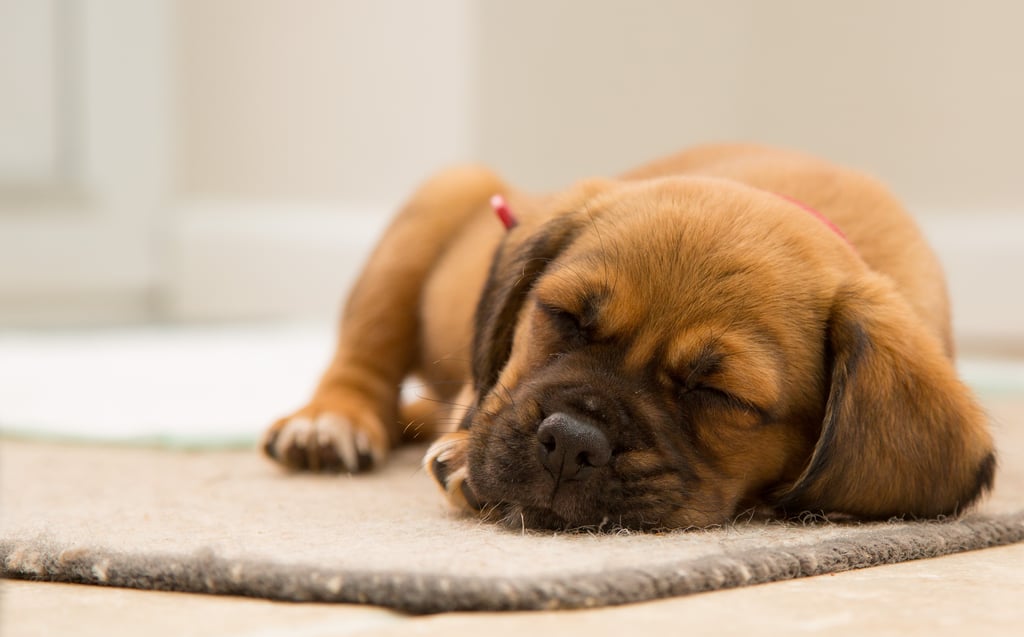
How Much Sleep Do Animals Need?
Adult humans sleep seven to nine hours each night (or, at least they should). But sleep needs for animals can be very different from that of humans. Animal sleep needs range from more than 20 hours each day to as little as 30 minutes. Pets tend to sleep well -- much more than humans, but they experience lighter sleep and wake up more alert.
Animals That Sleep The Most
Some animals sleep 18 hours or more each day. They include:
- Pythons
- Armadillos
- Mice
- Bats
- Opossum
Animals That Sleep The Least
Other animals sleep very little, far less than humans should. These animals often sleep for four hours or less each day:
- Deer
- Sheep
- Elephants
- Horses
- Giraffes
How Much Sleep Do Pets Need?
It may seem like pets spend half of their time sleeping -- and that's actually true. Dogs and cats sleep like predators, which means they can sleep for long stretches without worry of being attacked while they sleep. But their sleep is shallow and they are always ready to wake up alert to go after prey.
Dogs typically spend about 12 to 14 hours each day sleeping, with larger dogs typically sleeping longer than smaller ones. Elderly dogs and puppies might need as much as 20 hours of sleep -- leaving just four hours per day for activity. Although dogs sleep more than humans, they spend less time in REM sleep and may wake up more frequently, even in the middle of the night.
As for cats, they typically sleep 12 to 16 hours each day. Like dogs, cats sleep in multiple phases with typically light sleep. They can wake easily and stay in an alert resting phase. As flexible sleepers, cats can adjust their sleep cycle to line up with that of humans and their feeding schedules.
Helping Pets Sleep Well

Dogs and cats sleep flexibly, so they tend to find the time to sleep when they need. But animals who seem especially tired while awake, or have a change in their activity level may have problems sleeping. Try these tips for helping pets sleep well:
-
Automate nighttime pet care. Pets who need to go out to relieve themselves at night or get hungry as they sleep may not rest well until you get up to help them -- even at 3 a.m. Products like the Wags Go Smart Door make it easy to let pets outside even while you're still in bed, or the Petzi Smart Treat Dispenser can make it easy to give them treats to calm them down during the night.
-
Choose the right mattress. If you share a bed with your pets, make sure you're sleeping on the right mattress. A mattress that's not large enough or uncomfortably hot can make it difficult for anyone -- adult or animal -- to sleep well. A cooling mattress or cooling mattress topper can make sure you stay at the right temperature for healthy sleep, even if your bed is full of fur.
-
Get exercise. Physical activity and mental stimulation are essential for helping pets sleep. Wear them out during the day so they'll sleep well at night.
-
Meet their needs before bed. Make sure before you go to sleep that your pet is comfortable. They should have a clean, cozy place to sleep, a full belly, and an empty bladder so they'll be in the best position to sleep well at night.
-
See a veterinarian for concerns. If your pet seems to be sleeping more or less than usual and you don't think it's just due to getting older. Talk to your veterinarian about how their sleep patterns have changed so they can make sure they aren't a sign of a serious issue.
Animals and humans may sleep differently, but sleep needs are fairly consistent. Give your pets attention, activity, and comfort so they (and you) can sleep well at night.